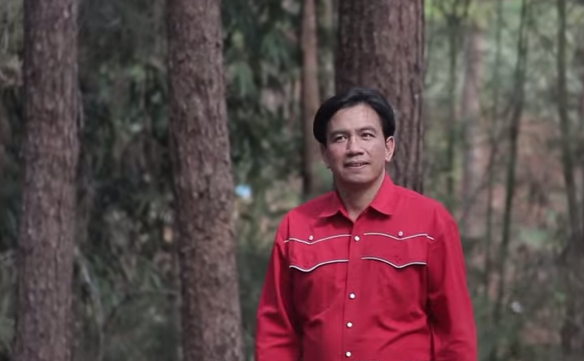THE Supreme Court En Banc (SC) has granted a Writ of Kalikasan over the Santo Tomas Forest Reserve at Mount Santo Tomas in Tuba, Benguet, striking down a legal challenge from former Baguio Representative Nicasio Aliping Jr.
The SC dismissed Aliping’s petition against the Court of Appeals’ (CA) issuance of a permanent environmental protection order (PEPO) in 2015. The CA PEPO, restricting human activities at the forest reserve, was awarded to the late Baguio Bishop Carlito Cenzon, Lingayen-Dagupan Archbishop Socrates Villegas and six other Baguio and Benguet residents, who filed and were granted a writ of kalikasan in 2014.
The original petition for a writ of kalikasan was prompted by two excavations in the forest reserve for roads that were being constructed without appropriate permits. The excavations killed over 700 pine trees in the forest reserve, and debris polluted water sources of Baguio and Tuba, according to the Baguio Water District (BWD).
Aliping was permanently enjoined and only him from performing acts “to develop or to enhance” his claim over the property claimed at the Sto. Tomas Forest Reserve (STFR). This was backed by circumstances that revealed that the directive issued in the Writ for the conceived anthropogenic activities were unique only to him which he contested as discriminatory in his petition.
According to the PEPO, Aliping must “permanently cease and desist from performing acts to develop or enhance the property he is claiming located at the Sto. Tomas Forest Reserve, which acts include bulldozing, leveling, or any earthmoving activity, improving the old building standing on the land, building any structure thereon.”
Aliping opposed the PEPO on three different bases, claiming a violation of his right to equal protection of the laws as he was “singled out” as the only respondent to be required to cease all development acts in the lot; a deprivation of his right to use his property without due process; and that the PEPO was unjust and baseless in claiming that he was responsible for the destruction without evidence.
The decision released struck down all opposing points. Aliping’s claim to discrimination was struck down, with the SC stating that Aliping was singled out validly as only his lot was subject to the tree-cutting and earth-moving activities, which did not occur on any of the other respondents’ lots. “A discriminatory purpose is not presumed, there must be a showing of “clear and intentional discrimination.”,” the decision reads.
The SC also stated that Aliping’s participation in the initial hearings before PEPO issuance was in fact the due process that he claimed was not observed.
Finally, the SC also struck down Aliping’s claim of accusation without basis, citing reports from the City Environment and Natural Resources Office (CENRO), a Sto. Tomas resident’s judicial affidavit, and Aliping’s own admissions that he instituted earth-moving and excavation activities in his claim, as well as that the roads created either originated from and were connected to his claim.
The SC said that there was “ample evidence presented during the proceeding linking him to the tree-cutting and earth moving activities” within his claim. Community Environment and Natural Resources Officer Julio Lopez and Felix Siplat, resident, attested to the road construction as the cause of the tree-cutting and construction of new roads from Aliping’s claim.
The statement of Aliping that the Writ violated his rights to due process was likewise debunked by the SC. The SC cited that “voluminous records attest to the directive and decision as a product of bonafide proceedings.” They said that the factual evidence was presented during proceedings which he admitted in “the return of the petitioner.” The new roads were constructed from the petitioner’s claim, “to improve access,” which were made at his behest. These facts also proved that his claim that the decision was “unjust and have no basis because these were outside his claim” were incorrect.
“Taken together, the above evidence reveals that the tree-cutting and earth moving activities within the reserve were made pursuant to the construction of two roads in Barangay Poblacion… The confluence of the foregoing circumstances, to our mind, clearly indicates that the construction of the two offending roads was made at the behest of the petitioner, and no other,” the decision reads.
The SC decision on G.R. No. 221823 which was promulgated on June 21, 2022 by 13 SC justices that included: Gesmundo, Leonen, Caguioa, Hernando, Lazardo-Javier, Inting, Zalameda, Lopez, Gaerlan, Rosario, Lopez, Dimaampao, Marquez, Kho Jr., and Singh. The same was uploaded on the SC website on 25 November 2022.
The STFR was declared in 1940 by president Manuel Quezon and the Writ of Kalikasan was issued on 6 May 2015 maintaining the area as a Forest Reserve. – With reports from Nonnette Bennett









